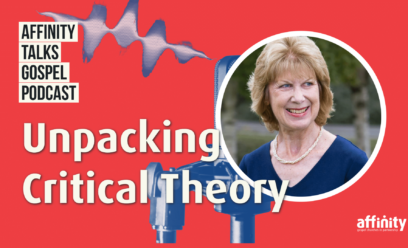Current Bioethics Issues – Summer 2024
This report first appeared in our Social Issues Bulletin – Issue 56 which is available to download here.
European Court of Human Rights supports prohibition on export of sperm and embryos from the deceased for fertility treatment
In September 2023, the European Court of Human Rights in Strasbourg decided (unanimously) that there had been no violation by France of Article 8 (right to respect for private and family life) of the European Convention on Human Rights, to stop the export of sperm and embryos from the deceased. The case of Baret and Caballero v. France concerned a woman wanting to export her deceased husband’s sperm, and a second woman seeking to export an embryo, created with the help of her deceased husband, to Spain where posthumous medically assisted procreation is permitted.
The Court considered that the absolute nature of the prohibition on posthumous insemination in France was a political and social issue relating to moral or ethical considerations. Thus, the role of the domestic policy-maker had to be given special weight.
This decision contrasts with the case of a British woman, in 1996, who went to court to be allowed to be inseminated with her late husband’s sperm so that she could have a baby. This caused an ethical storm which was debated in the UK courts, in the UK Parliament, and in the media. Because her husband had not given his written consent to use the sperm, the UK’s Human Fertilisation and Embryology Authority, which regulates the field on behalf of the UK Government, prevented her to be inseminated with his sperm in the UK. But it did eventually allow her to take the sperm abroad, and she conceived a child after treatment at a Belgian hospital.
Plans to remove the 14-day limit for experimenting on human embryos in the UK
A major consultation, undertaken by the UK’s Human Fertilisation and Embryology Authority (HFEA), indicated that 97% of responses opposed a law change that would remove the 14-day limit for experimenting on human embryos. But, despite this result, the taxpayer-funded HFEA has proceeded to lobby the Government to go ahead with its plans, which include changes to legislation (as soon as the UK General Election is over) to pave the way for removing the 14-day limit.
As part of the consultation, the HFEA also outlined a desire to ‘future proof’ the Human, Fertilisation and Embryology Act so that it is more easily modified to permit changes, such as allowing individuals to generally modify their reproductive cells. Under the proposals, future changes to embryology laws would be demoted to secondary legislation, where scrutiny would be reduced, rather than be considered under primary legislation, where ethical considerations can be rigorously discussed in Parliament and MPs held accountable.
The HFEA has also ignored overwhelming opposition to enabling ‘embryo banking’ which would allow significantly more embryos to be donated to a research bank for future destructive research.
Independent Review of gender identity
A long-anticipated independent review of gender identity services for children and young people in the UK was published in April 2024. This was chaired by Prof. Hilary Cass OBE, a previous president of the Royal College of Paediatrics and Child Health. It is the most thorough assessment that has yet been undertaken in the UK of the evidence for the medical treatment of young people who are distressed about their gender identity. The review commissioned an appraisal of international guidelines and a survey of international practice but did not take a position on what caused gender dysphoria or how it should be treated.
According to Prof. Cass, the majority of clinical guidelines had not followed international standards for guideline development. The review also indicated that the evidence for existing treatment was appallingly weak. In this regard, Prof. Cass indicated that she could not think of another area of paediatric care where young people were given a potentially irreversible treatment without any idea about what would happens to them in adulthood.
On the controversial issue of puberty blockers, which suppress the release of hormones that cause puberty and are often prescribed to children questioning their gender as a way of stopping physical changes, Prof. Cass indicated that the evidence was very limited. She explained that health professionals were really unclear about the reasons they were being used. It was also noted that most people who begin a puberty blocker pathway go on to a full medical transition. In other words, it does not seem to be buying time to think things through as originally intended.
The report indicated that for the majority of young people, a medical pathway may not be the best way to address their gender dysphoria while emphasising the need for a holistic approach, including psychotherapy. For those young people for whom a medical pathway may be clinically indicated, the report mentioned that it should also address any wider mental health and/or psychosocial challenges which may exist.
Following the publication of the Cass Review, both Scotland and England have paused prescriptions of puberty blockers for persons under 18 years of age except in very special circumstances.
Assisted Dying for Terminally Ill Adults (Scotland) Bill tabled in the Scottish Parliament
The Assisted Dying for Terminally Ill Adults (Scotland) Bill was submitted to the Scottish Parliament by the Liberal Democrat MSP, Liam McArthur. It is expected to be discussed during the autumn and voted on in 2025. But the Scottish government has indicated that ministers and backbenchers will not be instructed how to vote, as the matter is an issue of individual conscience.
Under the proposals, patients could only request medical assistance to end their lives if they had a terminal illness and had been ruled mentally fit to make the decision by two doctors. In addition, patients must be aged 16 or over, resident of Scotland for at least 12 months, and must administer the life-ending medication themselves.
In Scotland, it is not illegal to attempt suicide but helping someone take their own life could lead to prosecution for crimes such as murder, culpable homicide or offences under the Misuse of Drugs Act 1971. In England and Wales, on the other hand, the Suicide Act 1961 makes it an offence to encourage or assist the suicide or attempted suicide of another person.

Stay connected with our monthly update
Sign up to receive the latest news from Affinity and our members, delivered straight to your inbox once a month.



